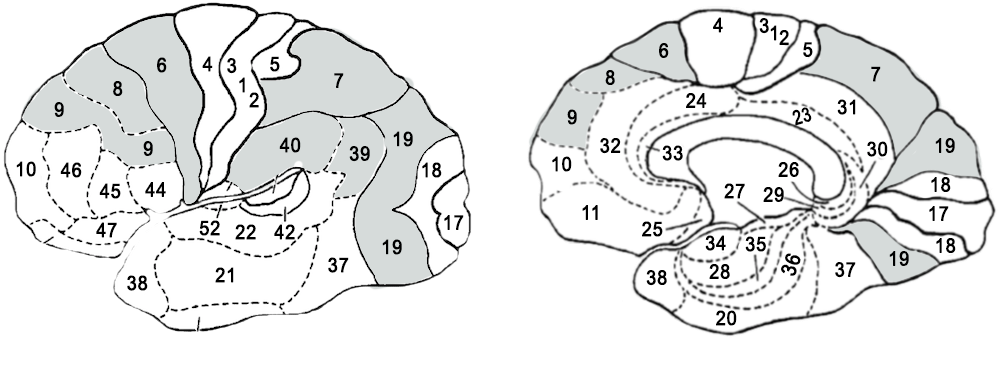Cognitive Skills
What we can improve
Whether you’re a student or worker, you’re certainly aware of the importance of being efficient and productive. The brain plays a predominant role in this equation.
We talk a lot about the use of Neurofeedback for various issues. Let’s not forget that Neurofeedback is used to optimize brain function. Whatever our starting point, we can train it to improve its functioning.
So, even someone with no problems can benefit from Neurofeedback in order to increase their level of attention, concentration, reasoning ability, their ability to make connections between different elements as well as their ability to treat more information simultaneously.
INCREASE IN INTELLECTUAL QUOTIENT (IQ)
Three different studies have shown that individuals increased their IQ by an average of 9 to 12 points, following 30 sessions of Neurofeedback1.
Depending on what we want to improve, several regions or networks can be targeted. Here are some examples of networks often trained to improve cognitive performance.
- Increased in Intelligence Quotient (IQ)
- Improved concentration
- Greater capacity for multi-tasking
- Memory enhancement
- Better problem solving
This training specifically targets the frontal lobes, which are responsible for planning and organizing events. The frontal lobes are also involved in concentration, problem solving ability, and judgment capacity.
1 Journal of Neurotherapy, Vol. 9(4) 2005
Improvements in IQ Score and Maintenance of Gains Following EEG Biofeedback with Mildly Developmentally Delayed Twins
Matthew J. Fleischman, PhD
Siegfried Othmer, PhD
Le trouble du déficit de l’attention avec ou sans hyperactivité (TDA/TDAH) est une condition neurodéveloppementale complexe qui toucherait 5 à 8 % des enfants. Il peut être décrit par une panoplie de symptômes liés à des dysfonctions ou à une pauvre maturation des lobes frontaux.

While cognitive functions are processes the brain implements, some aptitude tests assess their efficiency by engaging in intellectual activities. Cognitive evaluation covers areas such as
- attention,
- memory,
- language,
- decision-making,
- learning, etc.
The ease or difficulty with which each individual performs the tasks presented helps assess the functioning of their brain. Psychologists and neuropsychologists are qualified to conduct cognitive tests. Using this tool helps obtain numerical data that are analyzed to measure the individual’s brain performance. Different tests can be used on various groups of people, regardless of their age.
Everyone (children and adults) can improve their cognitive performance. Follow a training program focused on advancing brain competence. This involves adopting a lifestyle encouraging you to set new challenges or develop your creative thinking.
When might we be interested in improving our cognitive performance?
Improving cognitive competence depends on each person’s motivation. We can all improve our performance.
To achieve this, stimulate the brain by interacting with different groups of people. According to research, individuals with an active social life benefit from better development of their cognitive functions.
Engage in regular physical activity to stimulate the brain. Walking and dancing help oxygenate it better, but also improve memory, concentration, attention, and multitasking ability. Reading is ideal for organizing our thoughts better and developing our language.
While improving cognitive performance requires a healthy lifestyle, the neurofeedback training we offer at Neuroperforma clinics is also beneficial. Targeting the frontal lobes responsible for planning, organization, concentration, as well as judgment capacity, our approach yields excellent results. By undergoing multiple sessions, you will be able to increase your intellectual performance or become better at solving very complex problems.
To positively affect cognitive performance, train your brain, exercise, or listen to music. You can eat balanced meals, sleep well, limit stress, and drink enough to help your brain. Consuming medicinal plants such as chamomile, vervain, or thyme can boost your abilities due to their therapeutic properties.
Factors such as brain injury, head trauma, or stroke have adverse effects on cognitive performance. Neurodegenerative diseases and drugs also have an impact. Be cautious of stress, depression, anxiety, or fatigue, which can negatively influence your brain.
Cognitive performance can be measured using various tests. However, the most reliable ones are those conducted by a healthcare professional.
Since nutrition provides essential nutrients for the development and proper functioning of the brain, it has a major impact on cognitive functions.
Engaging in physical activity may have a positive effect on cognitive performance. It can reduce brain decline and the risk of neurodegenerative pathologies affecting the cognitive system.
Stress reduces working memory performance and, therefore, cognitive abilities. As a result, you will have difficulty processing information when you want to perform an activity.
Although everyone can benefit from it, profiles like athletes and entrepreneurs continuously seek to improve their cognitive performance. This also applies to people working in science, business leaders, etc.
Possessing excellent cognitive performance improves concentration and memory. You can also multitask and solve very complex problems.





